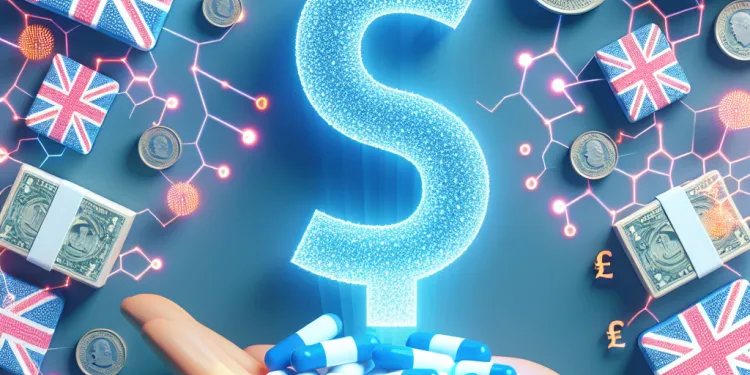
Find Help
More Items From Ergsy search
-
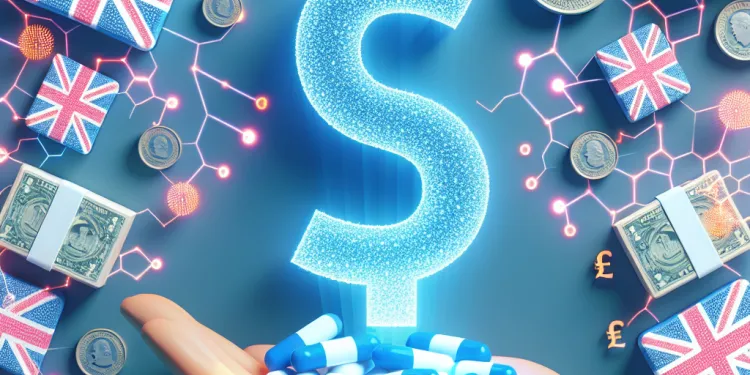
What are incretins?
Relevance: 100%
-
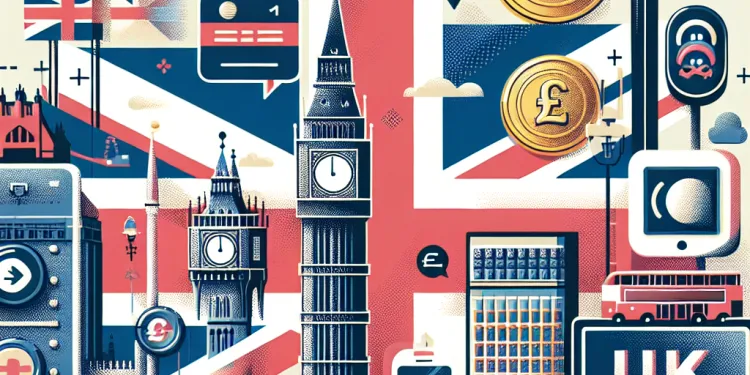
What is GLP-1?
Relevance: 27%
-
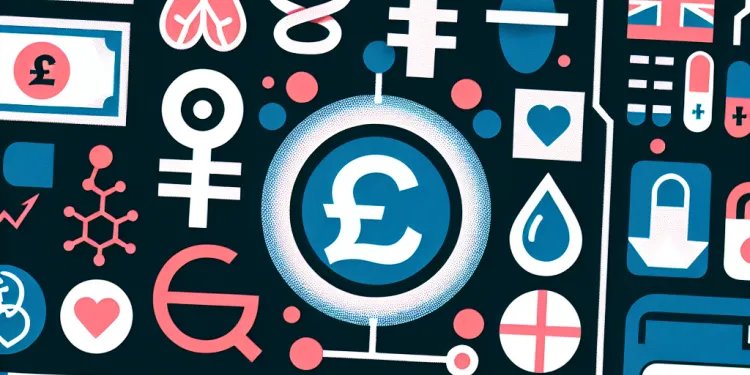
Is GLP-1 related to any other hormones?
Relevance: 21%
-

Can GLP-1 levels be measured?
Relevance: 19%
-

How does Mounjaro work?
Relevance: 18%
-

What impact does GLP-1 have on glucose metabolism?
Relevance: 17%
-

What is the connection between GLP-1 and insulin?
Relevance: 16%
-

Is GLP-1 naturally occurring?
Relevance: 11%
-

Is weight loss a possible benefit of Mounjaro?
Relevance: 11%
-
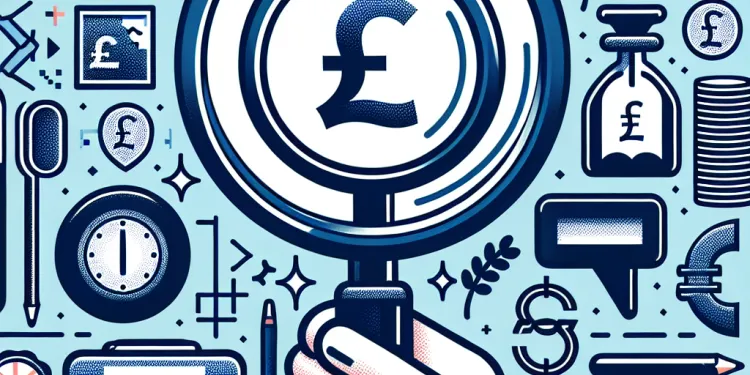
Has Ozempic been approved for weight loss?
Relevance: 11%
-
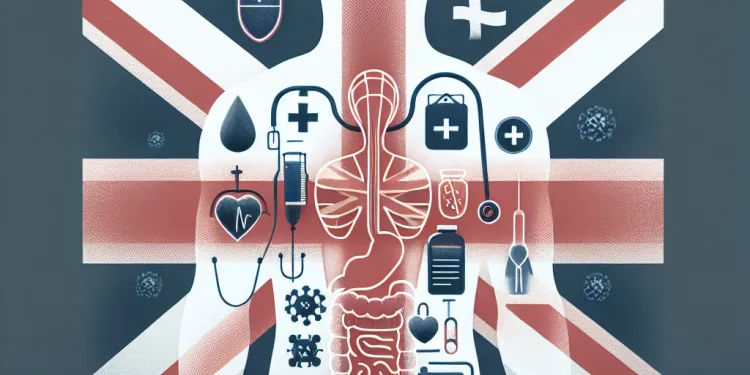
Where is GLP-1 produced in the body?
Relevance: 11%
-
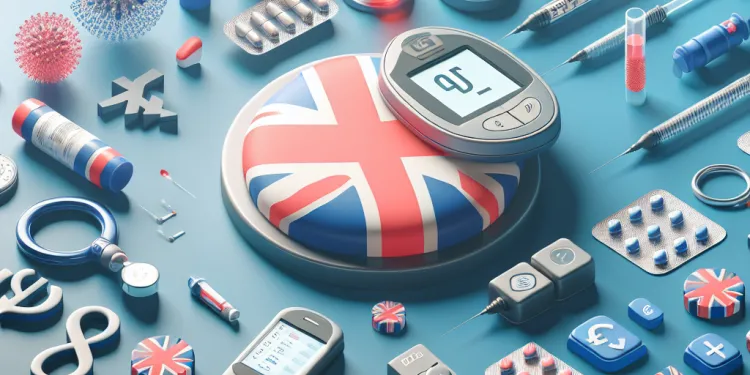
What role does GLP-1 play in diabetes management?
Relevance: 11%
-

Are there any dietary factors that influence GLP-1 secretion?
Relevance: 11%
-

Can Ozempic lead to dehydration?
Relevance: 11%
-

How do GLP-1 receptor agonists work?
Relevance: 8%
-

Can children use Mounjaro?
Relevance: 6%
-
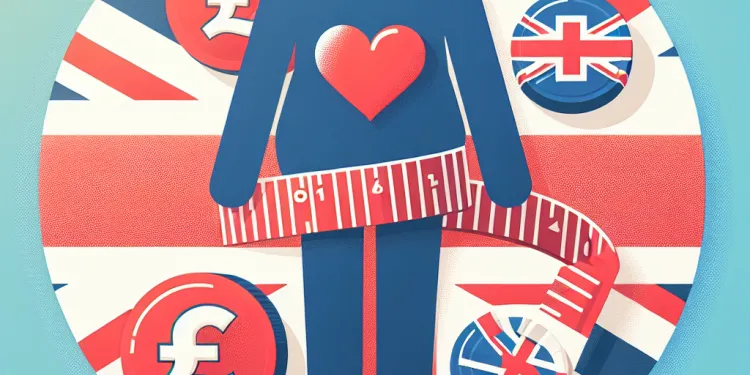
Can non-diabetic individuals use Ozempic for weight loss?
Relevance: 6%
-

How effective is Mounjaro in controlling blood sugar levels?
Relevance: 5%
What are Incretins?
Incretins are a group of metabolic hormones that play a crucial role in regulating blood glucose levels. These hormones are released after eating and work by stimulating a decrease in blood sugar. Incretins achieve this by increasing the amount of insulin secreted by the pancreas, especially after meals. They are part of the body's endocrine system and make sure that glucose is efficiently processed and used for energy.
Main Types of Incretins
The two most important incretin hormones are Glucagon-like peptide-1 (GLP-1) and Glucose-dependent insulinotropic polypeptide (GIP). Both GLP-1 and GIP are produced in the gut and have slightly different but complementary effects on insulin secretion.
GLP-1 is produced by the L-cells in the small intestine. Its functions include enhancing insulin secretion, inhibiting glucagon release (thereby reducing hepatic glucose production), slowing gastric emptying, and promoting satiety which can help to reduce food intake.
GIP is secreted by the K-cells in the small intestine. Its primary role is to stimulate insulin secretion. Unlike GLP-1, GIP does not significantly affect gastric emptying or appetite but focuses mainly on insulin dynamics.
Role in Diabetes Management
Incretins are of particular interest in the management of diabetes, especially type 2 diabetes. People with type 2 diabetes sometimes experience impairments in incretin effects, where the typical insulin-stimulating response to foods is diminished. Because of this, incretin-based therapies have been developed to improve blood glucose control.
Incretin mimetics such as GLP-1 receptor agonists are used to enhance the effects of GLP-1, leading to better insulin secretion following meals, reduced blood glucose levels, and sometimes weight loss. Dipeptidyl peptidase-4 (DPP-4) inhibitors are another class of medications that work by blocking the degradation of incretins, thus prolonging their action in the body.
Ongoing Research and Developments
Research into incretins is an active field, with ongoing studies aiming to better understand their functions and potential therapeutic applications. Scientists are exploring new ways to use incretin-based therapies not only for diabetes but also for obesity, metabolic syndrome, and even cardiovascular diseases.
As our understanding of incretins deepens, there is potential for innovative treatments that target various components of the metabolic system, providing more options for patients with complex metabolic disorders. This research holds promise for developing more effective treatments with fewer side effects.
Conclusion
Incretins play a vital role in managing postprandial blood sugar levels and present significant therapeutic potential, particularly for individuals with type 2 diabetes. Continued research is likely to expand their use and effectiveness in treating various metabolic diseases. Understanding and harnessing the power of incretins could lead to better health outcomes and improved treatment options for many people.
What are Incretins?
Incretins are special hormones. Hormones are chemicals in our body that send messages. Incretins help control blood sugar. After you eat, incretins tell your body to lower blood sugar levels. They do this by making the pancreas release more insulin. Insulin helps use sugar from food for energy. This process helps keep your blood sugar just right.
Main Types of Incretins
There are two main incretin hormones. They are called GLP-1 and GIP. Both are made in the gut, which is part of your belly.
GLP-1 is made in the small intestine. It helps the pancreas release more insulin. It also stops the liver from making too much sugar. GLP-1 slows down how fast the stomach empties food and makes you feel full. This can help you eat less.
GIP is also made in the small intestine. It mainly helps the pancreas release insulin. GIP doesn’t change how fast the stomach empties or make you feel full. It works mostly on insulin.
Role in Diabetes Management
Incretins are important for people with diabetes, especially type 2 diabetes. Sometimes, people with type 2 diabetes don’t respond well to incretins. This means their body doesn’t make or use insulin correctly after eating. There are medicines called incretin-based therapies that help with this.
Some of these medicines copy the work of GLP-1 to help the body lower blood sugar after meals and can also help with weight loss. Others, like DPP-4 inhibitors, help incretins stay in the body longer so they can work better.
Ongoing Research and Developments
Scientists are still learning about incretins. They want to know how to use them better to treat diabetes and other health problems like obesity, which is being very overweight, and heart disease.
As they learn more, they hope to create better medicines that have fewer side effects. This could help people with different health issues feel better.
Conclusion
Incretins help manage blood sugar after eating, which is very important for people with type 2 diabetes. Scientists are still studying incretins to find new treatments. Understanding how incretins work might help make better medicines for diabetes and other health problems.
Frequently Asked Questions
What are incretins?
Incretins are hormones that stimulate insulin secretion in response to meals, primarily from the gut.
What are the main types of incretins?
The two main types of incretins are Glucagon-like peptide-1 (GLP-1) and Gastric inhibitory polypeptide (GIP).
How do incretins help regulate blood sugar levels?
Incretins enhance insulin secretion and inhibit glucagon release, helping to lower blood glucose levels after eating.
Where are incretins produced?
Incretins are produced in the gut, specifically by the intestinal enteroendocrine cells.
Are incretins used in diabetes treatment?
Yes, incretin mimetics and enhancers, such as GLP-1 receptor agonists and DPP-4 inhibitors, are used to treat type 2 diabetes.
What is GLP-1?
GLP-1, or Glucagon-like peptide-1, is an incretin hormone that stimulates insulin release and inhibits glucagon secretion.
What is GIP?
GIP, or Gastric inhibitory polypeptide, is an incretin hormone that stimulates insulin secretion in response to food intake.
Can incretins help with weight loss?
Yes, GLP-1 based therapies can promote weight loss by slowing gastric emptying and increasing satiety.
How are incretins degraded in the body?
Incretins are rapidly degraded by the enzyme dipeptidyl peptidase-4 (DPP-4).
What role do incretins play in the 'incretin effect'?
The incretin effect is the augmented insulin secretion observed when glucose is taken orally compared to intravenously, largely due to incretins.
How do DPP-4 inhibitors work?
DPP-4 inhibitors work by preventing the degradation of incretins, thereby prolonging their action and enhancing insulin secretion.
What are the benefits of GLP-1 receptor agonists in diabetes?
GLP-1 receptor agonists enhance insulin secretion, suppress glucagon, slow gastric emptying, and can aid in weight loss.
Are there any side effects to incretin-based therapies?
Possible side effects include nausea, vomiting, pancreatitis, and, in some cases, thyroid tumors.
Do incretins affect appetite?
Yes, incretins, particularly GLP-1, can reduce appetite and increase feelings of fullness.
Can incretin therapy be used in type 1 diabetes?
Incretin therapy is primarily used for type 2 diabetes but is currently under investigation for potential benefits in type 1 diabetes.
How does GLP-1 affect the cardiovascular system?
GLP-1 has cardioprotective effects, including improving endothelial function, reducing blood pressure, and decreasing cardiovascular risk.
What is the mechanism of action of GLP-1 receptor agonists?
GLP-1 receptor agonists mimic the action of native GLP-1, enhancing insulin release, inhibiting glucagon secretion, and delaying gastric emptying.
How do incretin levels differ in individuals with type 2 diabetes?
Individuals with type 2 diabetes often have diminished incretin effects, leading to reduced insulin secretion and impaired glucose regulation.
What are some examples of incretin-based medications?
Examples include Exenatide, Liraglutide (GLP-1 receptor agonists), Sitagliptin, and Saxagliptin (DPP-4 inhibitors).
Can diet affect incretin levels?
Yes, diet composition, particularly those rich in carbohydrates and proteins, can influence incretin secretion and activity.
What are incretins?
Incretins are small helpers in your body. They help control sugar levels in your blood after you eat. They tell your body to make more insulin. Insulin helps sugar go into your cells, which gives you energy.
If you find it hard to understand, you can use pictures or videos to learn more. Ask an adult for help if needed.
Incretins are special chemicals in your body. They help your body make more insulin when you eat food. Insulin is a hormone that helps control sugar levels in your body. Incretins mainly come from your stomach and intestines.
Tip: Using simple language and pictures might help you understand better.
What are the main types of incretins?
Incretins are special chemicals in your body. They help control your sugar levels. There are two important types:
- GLP-1: This stands for Glucagon-Like Peptide-1. It helps your body make insulin.
- GIP: This stands for Glucose-Dependent Insulinotropic Polypeptide. It also helps with insulin.
To learn about these, you might find pictures or videos helpful. They can show you how incretins work in a simple way.
There are two main types of incretins. They are called GLP-1 and GIP.
How do incretins help control sugar in the blood?
Incretins are special helpers in your body. They help keep the sugar in your blood just right. This is how they work:
- They tell your body to make a hormone called insulin. Insulin helps lower blood sugar when it gets too high.
- They help slow down how fast food leaves your stomach. This stops blood sugar from going up too fast.
To learn more about how incretins work, you can:
- Watch videos online about blood sugar and incretins.
- Ask a doctor or nurse to explain it to you.
- Read simple books about how the body works.
Incretins help the body use insulin better. They stop glucagon from being released. This helps keep blood sugar levels low after you eat.
Where do incretins come from?
Incretins come from tiny cells in your gut.
Do doctors use incretins to help people with diabetes?
Incretins are special proteins in your body. They help control how your body uses sugar.
Doctors can use incretins to help people with diabetes. This can help keep their blood sugar levels normal.
If you want to know more, you can:
- Ask your doctor.
- Go to a health website.
- Look at a book about diabetes.
Yes, there are medicines called incretin mimetics and enhancers. These include GLP-1 receptor agonists and DPP-4 inhibitors. They help treat type 2 diabetes.
What is GLP-1?
GLP-1 is something in your body. It helps you feel full after eating. It tells your brain when you have had enough food.
If you want help reading, you can:
- Ask someone to read with you.
- Use reading apps to say the words out loud.
- Look at pictures about GLP-1.
GLP-1 is a hormone. It helps your body by telling it to make insulin. It also stops your body from making too much glucagon.
What is GIP?
GIP is short for "General Insurance Provider."
This is a company that sells insurance. Insurance helps you if something bad happens, like a car crash or a house fire. The insurance company gives you money to fix things.
If you find this hard to read, you can:
- Ask someone to read it with you.
- Use a text-to-speech app to listen to it.
GIP is a hormone. It has a long name: Gastric inhibitory polypeptide. GIP helps the body in a special way. When you eat food, GIP tells your body to make more insulin.
Can incretins help you lose weight?
Incretins are special chemicals in your body. They help control how your body uses energy from food.
Some people think incretins can help you lose weight. They work by making you feel full after eating, so you eat less and your body uses stored fat for energy.
If you want to lose weight, talk to your doctor. They can tell you about incretins and see if they are a good choice for you.
Here are some things you can do to learn more:
- Ask a family member or friend to read with you.
- Use apps that read text out loud.
- Look for videos that explain incretins.
Yes, GLP-1 medicines can help people lose weight. They work by making your stomach empty food more slowly and making you feel full for longer.
Tips for better understanding:
- Try reading out loud.
- Use a ruler or your finger to follow along with the words.
- Ask someone to explain any words you don't know.
How Does the Body Break Down Incretins?
Incretins are special chemicals that help control sugar in the blood. The body breaks them down using a natural process. If you want help understanding this, try using pictures or asking someone to explain it with simple words.
Incretins are special chemicals in your body. They are broken down quickly by an enzyme called DPP-4.
What do incretins do in the 'incretin effect'?
Let's talk about incretins! Incretins are special things in your body.
When you eat food, incretins help your body use sugar (glucose) better. This is called the 'incretin effect'.
If you would like help to read this, you can ask someone to read it with you. Or, try using a text-to-speech tool to listen.
The incretin effect is when your body makes more insulin when you eat sugar compared to when sugar goes straight into your veins. This is because of something called incretins.
How do DPP-4 inhibitors work?
DPP-4 inhibitors are medicines that help people with diabetes. They help the body control blood sugar levels.
What do they do?
- They stop a chemical called DPP-4 in the body.
- This helps your body make more insulin. Insulin lowers blood sugar.
- They also help your body use the sugar better.
How can they help?
- They can help people with diabetes feel better.
- They keep blood sugar from getting too high.
Things that can help:
- Use pictures to remember what DPP-4 inhibitors do.
- Ask your doctor if you have any questions.
DPP-4 inhibitors are medicines that help keep incretins working longer. Incretins are chemicals in the body that make your insulin work better.
By stopping incretins from breaking down, these medicines help the body make more insulin.
If you find it hard to read long texts, you can use tools like text-to-speech apps which can read the text out loud for you. Also, breaking down the text into smaller parts and reading them slowly can help.
How do GLP-1 receptor agonists help people with diabetes?
GLP-1 receptor agonists are medicines. They help people with diabetes in different ways:
- They help control blood sugar levels.
- They can help people lose weight.
- They may reduce the risk of heart problems.
Talk to your doctor to learn more about these medicines. You can also use a notebook to write down questions or get help from apps that show easy words and pictures.
GLP-1 medicines help your body make more insulin. They lower another hormone called glucagon. GLP-1 medicines also slow down how fast your stomach empties. These medicines can help some people lose weight.
If you find reading hard, try using text-to-speech tools that can read the words out loud for you.
Do incretin medicines have any side effects?
Incretin medicines are drugs that help control blood sugar. Like other medicines, they can have side effects. This means they might make you feel different. Some people might feel sick in their tummy or have a headache. Tell your doctor if you feel unwell.
Helpful tips:
- Always ask questions if you don't understand something.
- Use pictures to help understand how you feel.
- Ask a friend, family member, or doctor to explain things to you.
Sometimes, this medicine might make you feel sick, throw up, or have a pain in your tummy. In rare cases, it can cause lumps in your neck, called thyroid tumors.
Do incretins change how hungry we feel?
Yes, incretins like GLP-1 can help you feel less hungry and make you feel full faster.
Can incretin therapy help people with type 1 diabetes?
People with type 1 diabetes need insulin. Incretin therapy helps the body use its own insulin better. It may not work the same for type 1 diabetes because these people can't make insulin.
Doctors are studying if incretin therapy can help with type 1 diabetes. It might work along with insulin to help control blood sugar better.
This is still being tested. If you have questions, talk to your doctor.
For understanding, you can:
- Ask someone to explain the words you don't know.
- Use a dictionary to learn new words.
- Look up videos to see how incretin therapy works.
Incretin therapy is a treatment mainly used for people with type 2 diabetes. Right now, doctors are studying if it can also help people with type 1 diabetes.
How does GLP-1 affect the heart and blood vessels?
GLP-1 is something in our body that can help the heart and blood vessels work well. Here is how it helps:
- It helps the heart pump blood better.
- It makes blood flow smoothly.
- It can lower high blood pressure.
If you need help understanding, you can:
- Ask a friend or family member to explain.
- Use pictures or drawings to help you see how it works.
- Talk to a teacher or doctor for more help.
GLP-1 helps keep your heart healthy. It makes your blood vessels work better, lowers your blood pressure, and helps reduce the chance of heart problems.
How do GLP-1 receptor agonists work?
GLP-1 receptor agonists are medicines. They help the body use sugar better.
These medicines:
- Tell your body to make more insulin after you eat.
- Help your stomach empty slowly so you feel full longer.
- Help control your blood sugar levels.
To learn more, you can ask a doctor or use an online health tool with pictures or easy words.
GLP-1 receptor agonists help the body in three ways. They help the body make more insulin, stop the body from making too much glucagon, and slow down how fast the stomach empties.
If you find this hard to read, try using tools like text-to-speech apps, or ask someone to read it with you. Drawing pictures might also help you understand better!
What is different about incretin levels in people with type 2 diabetes?
Incretins are special chemicals in the body. They help control blood sugar levels.
In people with type 2 diabetes, these chemicals work differently.
If you find this hard to read, you can:
- Ask someone to help you understand.
- Use a tool that reads text out loud.
People who have type 2 diabetes may have trouble with their incretins. This makes it harder for their bodies to make insulin and control blood sugar levels.
What are some incretin-based medicines?
Incretin-based medicines help your body control sugar levels. Here are some examples:
- GLP-1 receptor agonists (These medicines help your body release more insulin).
- DPP-4 inhibitors (These medicines stop a protein from breaking down incretin hormones).
If you need help understanding this, you can:
- Ask a doctor for more information.
- Use pictures or simple diagrams to learn about medicines.
- Use a dictionary to find out what hard words mean.
Here are some medicine names that help with blood sugar:
- Exenatide
- Liraglutide (these are called GLP-1 receptor agonists)
- Sitagliptin
- Saxagliptin (these are called DPP-4 inhibitors)
If you need help reading, try using an audio or screen reader. They can read the words out loud for you.
Can food change incretin levels?
Yes, the food you eat, like carbs and proteins, can change how your body makes and uses incretins.
Useful Links
This website offers general information and is not a substitute for professional advice.
Always seek guidance from qualified professionals.
If you have any medical concerns or need urgent help, contact a healthcare professional or emergency services immediately.
Some of this content was generated with AI assistance. We’ve done our best to keep it accurate, helpful, and human-friendly.
- Ergsy carfully checks the information in the videos we provide here.
- Videos shown by Youtube after a video has completed, have NOT been reviewed by ERGSY.
- To view, click the arrow in centre of video.
- Most of the videos you find here will have subtitles and/or closed captions available.
- You may need to turn these on, and choose your preferred language.
- Go to the video you'd like to watch.
- If closed captions (CC) are available, settings will be visible on the bottom right of the video player.
- To turn on Captions, click settings .
- To turn off Captions, click settings again.
More Items From Ergsy search
-

What are incretins?
Relevance: 100%
-

What is GLP-1?
Relevance: 27%
-

Is GLP-1 related to any other hormones?
Relevance: 21%
-

Can GLP-1 levels be measured?
Relevance: 19%
-

How does Mounjaro work?
Relevance: 18%
-

What impact does GLP-1 have on glucose metabolism?
Relevance: 17%
-

What is the connection between GLP-1 and insulin?
Relevance: 16%
-

Is GLP-1 naturally occurring?
Relevance: 11%
-

Is weight loss a possible benefit of Mounjaro?
Relevance: 11%
-

Has Ozempic been approved for weight loss?
Relevance: 11%
-

Where is GLP-1 produced in the body?
Relevance: 11%
-

What role does GLP-1 play in diabetes management?
Relevance: 11%
-

Are there any dietary factors that influence GLP-1 secretion?
Relevance: 11%
-

Can Ozempic lead to dehydration?
Relevance: 11%
-

How do GLP-1 receptor agonists work?
Relevance: 8%
-

Can children use Mounjaro?
Relevance: 6%
-

Can non-diabetic individuals use Ozempic for weight loss?
Relevance: 6%
-

How effective is Mounjaro in controlling blood sugar levels?
Relevance: 5%


